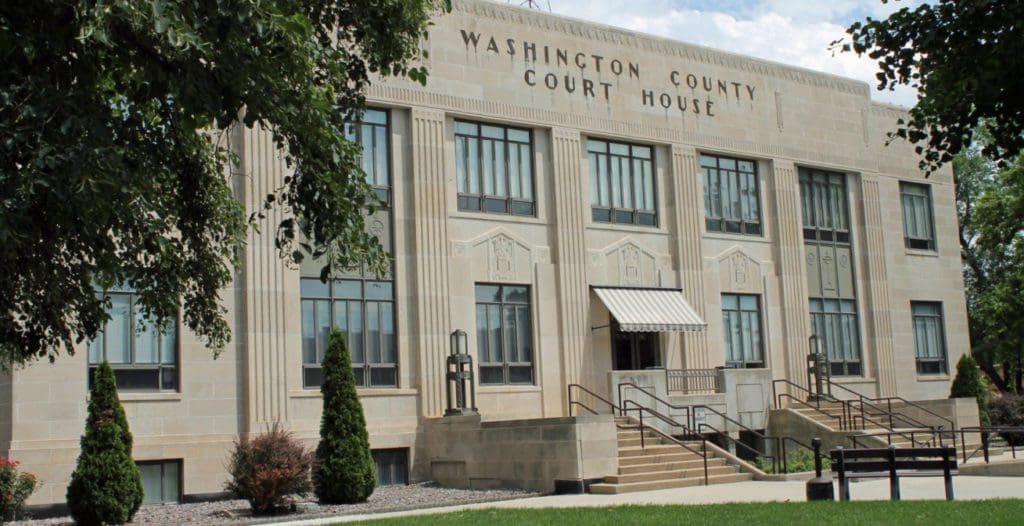Below are a list of our most common questions and answers. If your questions not listed below, please reach out to us for more information.
Homeowners should receive their real estate and personal property tax statements for the current year on or after November 1st, but no later than December 15th. If only the first half of the current year taxes are paid in December, the second half tax statements or notices are mailed out in May. (County option)If the full amount was paid in December the taxpayer should not receive a second half statement.
If a homeowner has an escrow account for his real estate taxes with a mortgage company, that mortgage company should receive the tax statement. If the homeowner does receive the tax statement instead of the mortgage company we ask the homeowner to forward it to their mortgage company so they can pay taxes from the escrow account. We also ask the homeowner to have their current mortgage company notify the County Treasurer’s office so we can get the correct billing information from them.
If the homeowner is to receive a statement but does not by the end of November, please contact the County Treasurer’s office so we can send a duplicate statement and verify billing information.
If a homeowner is responsible for paying taxes on a home or other real estate property the full amount could be paid or the half amount on or before December 20th of that tax year. If the first half is paid the second half of that year’s taxes are due on or before May 10th of the following year. Mortgage Companies are required by Federal Law to make half payments, so they will be paying taxes on or before December 20th and on or before May 10th.
Real estate property taxes three years delinquent are subject to a tax foreclosure action and public sale.
The first half is due November 1st. If first half is not paid by December 21st, the full amount is due with interest. If the taxpayer pays the first half of the personal property taxes in December, the second half is due on or before May 10th of the following year.
If the first half of the personal property taxes are not paid by December 20th, the full tax amount plus interest becomes due starting December 21st. Delinquent notices for personal property are sent out on or before February 20th. If they are not paid then warrants are issued. Warrants are issued 14 days after notices are mailed. Tax warrants go to the County Sheriff Delinquent Personal Property Tax Division for collection of delinquent taxes, interest and sheriff fees. Payments are payable to the County Sheriff or County Treasurer. If the taxpayer paid the first half of his personal property on time the second half of the personal property taxes are due on or before May 10th. If these taxes are not paid by May 10th interest will begin to accrue. Delinquent personal property tax notices are mailed on or before July 10th. If they are not paid tax warrants are issued 14 days after notices are mailed. All delinquent personal property tax must be paid at the county Sheriff’s office: Delinquent Personal Property Tax division. Kansas State Law (KSA 79-2017)* requires delinquent personal property to be advertised in October. If a taxpayer has any previous years owing on personal property, they must be paid at the County Treasurer’s Office. *KSA 79-2017: Failure to receive any such tax notice shall not relieve such person, firm or company from any interest and cost.
Interest rates change annually, contact your County Treasurer for the current rates.
County Option – contact your County Treasurers Office for options available.
Personal checks, money orders, cashier checks, and cash. Credit or Debit cards, (County Option).
For real estate and personal property tax statements and reminders, make checks payable to the County Treasurer. For personal property tax warrants, checks should be made out to the County Treasurer.
Come by the county treasurers office to make any payments.
Mail all checks to our address.
Yes we do. All credit card transactions will be assessed a users fee.
Unlike a retail business who’s credit card fees are hidden in the cost of the merchandise, the County Treasurer’s office uses the option of credit/ debit cards as a service to the individual taxpayer. The fee collected is remitted to the Credit Card Company.
A Credit Card charge authorization form is printed on all tax bills and on the real estate delinquent tax reminders. An authorization form is mailed with the delinquent personal property tax notices. The Discover Card charge authorization form should be filled out in it’s entirety. Be sure to do the following!
Write in the card number, make sure you write it correctly. Write in the expiration date of the card. Write in the Tax amount. Write in the Fee amount. Most people forget this, however, the County Treasurer has the authorization to automatically impose the required transaction fee. Sign it.
If the authorization form is not filled out in it’s entirety your payment can not be processed and will be sent back to you.
The charge will show as a purchase on your statement.

